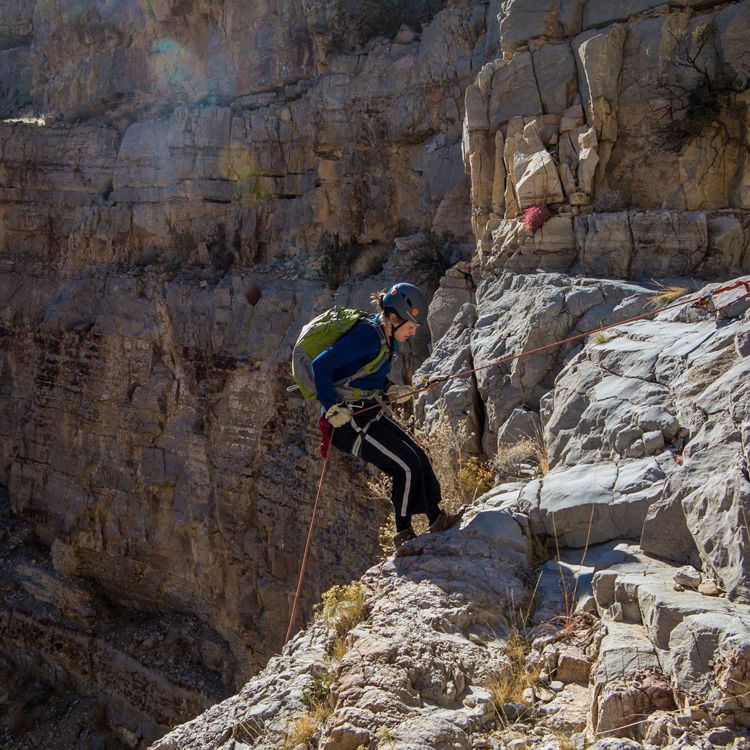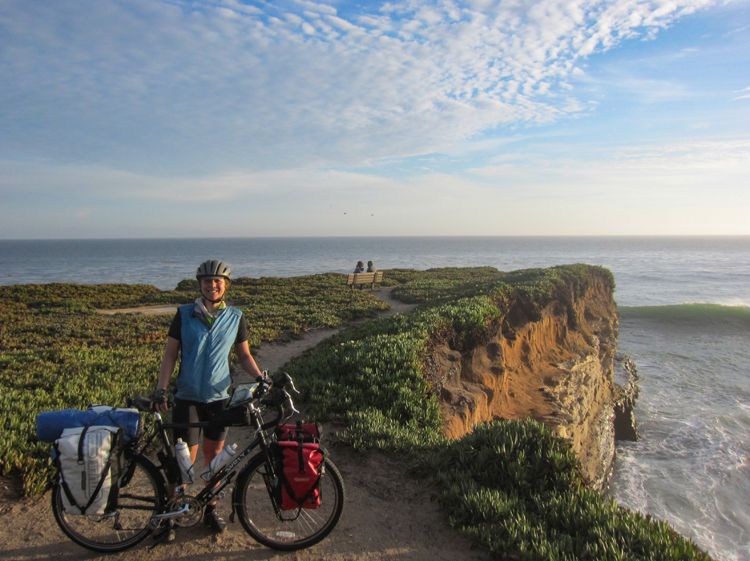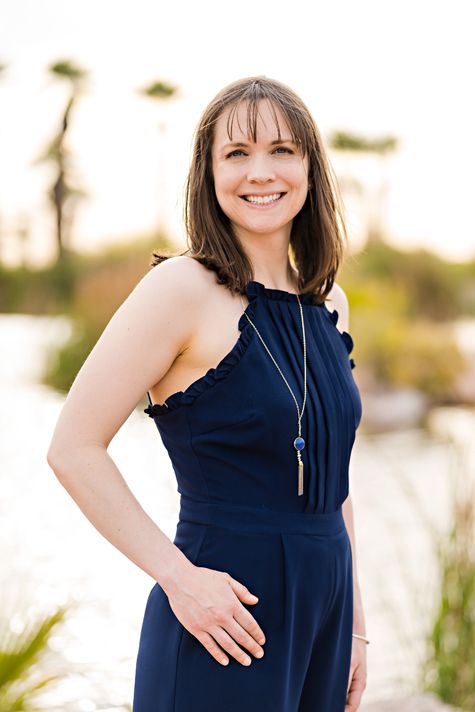Early Career Scientist Spotlight
Dr. Kristen Whitney
Hydroclimate Scientist
Hydrological Sciences Laboratory (617)
What is your research focus?
I am immersed in Earth System Science, focusing on addressing significant environmental challenges through a combination of scientific inquiry, technical innovation, and collaboration with stakeholders. As a NASA Postdoctoral Program fellow, my current research primarily revolves around two key projects that align with the objectives outlined by the NASA Science Mission Directorate and the 2017 NASA Earth Science Decadal Survey.
In the first project, I am studying drought in the Western U.S., where prolonged dry soil and groundwater conditions adversely affect agriculture. I am exploring how environmental variability and human influences, such as water use and crop management, affect different land surface processes and agricultural outcomes. To do this, I use NASA’s Land Information System (LIS), which combines land surface modeling with data from satellites and ground-based Earth observations to create a comprehensive virtual representation of land surface hydrology processes. I also use data-driven methods to compare model results with other relevant datasets, helping to better understand these processes. I aim to improve our understanding of how food and water systems interact, expand this research globally, and contribute to better forecasting, early warning systems, and long-term planning for resources.
In my second project, I work with NASA's Earth Information System (EIS) team to develop the third phase of the North American Land Data Assimilation System (NLDAS-3). NLDAS integrates Earth observations and modeling to routinely provide crucial datasets on weather, soil moisture, vegetation, and water supplies to assist various users in resource management. We are improving the spatial resolution, refining the methods used to calculate and combine the meteorological inputs, reducing data delivery delays, and integrating remote sensing data into the NLDAS system. With LIS, I am evaluating different model framework adjustments to improve snowpack simulation in complex terrains and coastal regions, which will benefit NLDAS-3 and other large-scale modeling projects. Additionally, I help with our stakeholder engagement efforts to ensure the system meets their needs, especially in drought monitoring, water resource management, and agricultural decision-making.

Credit: Jeff Whitney
How did you end up working at NASA Goddard?
My journey to NASA Goddard began during my Ph.D. dissertation, where I collaborated on a stakeholder-driven project funded by NASA Applied Sciences, aimed at supporting water resource planning in the Colorado River Basin. This experience provided invaluable insights into leveraging NASA satellite Earth observations for land surface modeling. It also led to an opportunity to present my research at a conference (American Geophysical Union Fall Meeting) session focused on NASA Earth science applications, chaired by my current NASA advisor, Dr. John Bolten. Our discussions during the conference fueled me to write my awarded proposal for my NASA Postdoc Program fellowship.
What research accomplishment are you most proud of?
I am particularly proud of my doctoral research, which highlighted the importance of stakeholder-driven research in tackling water resource challenges in the Colorado River Basin. Working closely with interdisciplinary researchers, water managers, and other decision-makers, I incorporated their feedback into three dissertation chapters. Firstly, my analysis of land surface model outcomes under multiple future environmental scenarios directly contributed to essential drought planning efforts in this basin that supports over 40 million people.
Additionally, I translated stakeholder feedback into a set of manageable model scenarios to explore the impacts of forest disturbances (drought, wildfires, pest infestations) on water resources across the basin. I then developed CRB-Scenario-Explorer, a user-friendly web-based tool enabling in-depth exploration of our model results, thus improving research accessibility and transparency. Stakeholders confirmed the usefulness of the interactive dashboards to explore results more thoroughly, answer their questions of interest, and brief their board members on potential water resource challenges. The collaborative nature of this work has led to continued partnerships between my alma mater and Colorado River managers beyond my dissertation. This achievement underscores the importance of prioritizing stakeholder engagements, use-inspired research, and delivering results through accessible tools to effectively address real-world challenges.
What advice would you give your younger self?
Remember, it's okay not to have everything figured out. Nobody does, and those who claim otherwise are simply fooling themselves. Follow your curiosity diligently, and you'll discover paths you never imagined. Take it one step at a time, even on days when it feels like you're moving backward. Setting boundaries around your work time and prioritizing your mental health and work-life balance are commendable and crucial; never feel guilty about it. Your journey and achievements won't mirror anyone else's, so avoid comparing yourself to others. Trust in yourself—you're more capable than you realize!
What do you like to do in your free time?
In my free time, you can often find me hitting the trails with my spouse and our two energetic fur babies, Leeloo and Arrow. Whether it's a leisurely stroll through scenic forests or a challenging mountain hike, we're always up for an adventure in nature. As a fitness enthusiast, I thrive on the adrenaline rush of trail running and pushing my limits in the gym. When I'm not breaking a sweat, I'm curating eclectic playlists that set the mood for any occasion—whether it's my work commute, a high-energy workout session, or a relaxing evening at home. My spouse and I share a passion for food, and we're self-proclaimed foodies on a mission to explore the culinary wonders of the DC area. From experimenting with exotic cuisines in our kitchen to indulging in gastronomic delights at local eateries, we're always on the hunt for our next delicious discovery!
What’s a fun fact about you?
During the break between my Master’s program and starting my Ph.D., I embarked on an unforgettable adventure—a self-sustained bicycle tour from Vancouver, B.C. to Santa Cruz, CA, covering over 1,400 miles winding along the stunning coastal and inland routes through Washington, Oregon, and Northern California. With my trusty 150lb bike and gear in tow, I pedaled through diverse terrain, greeting giant redwood mountains and tiny banana slugs along the way. I camped under the stars on beaches and in forests, and experienced the warmth of hospitality from both familiar faces and kind strangers. From swapping stories with an avid Big-Foot enthusiast to enjoying tacos, margaritas, and a hot tub courtesy of a generous couple, each encounter left its mark. I even found myself welcomed aboard a houseboat where I savored delicious grilled fish and veggies prepared by an amazing cook. Despite facing challenges like fixing countless tires and broken chains, the journey was filled with amazing memories and tales of the trail that I will always cherish.

Credit: A friendly stranger
Biography
Home Town:
Scottsdale, AZ
Undergraduate Degree:
B.S. Environmental Geology; University of California, Santa Cruz; Santa Cruz, CA
Post-graduate Degrees:
M.S. Geological Science; Arizona State University; Tempe, AZ
Ph.D.. Geological Science; Arizona State University; Tempe, AZ

Link to Dr. Whitney's GSFC Bio
